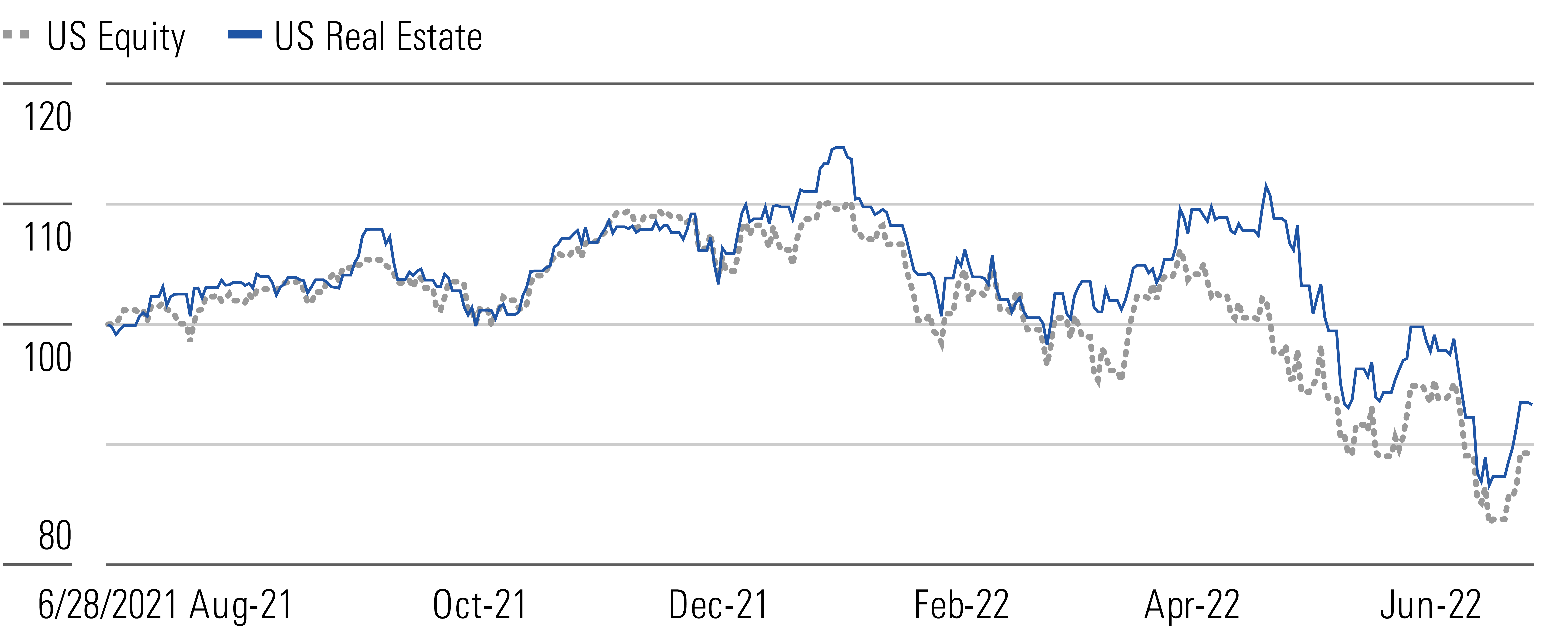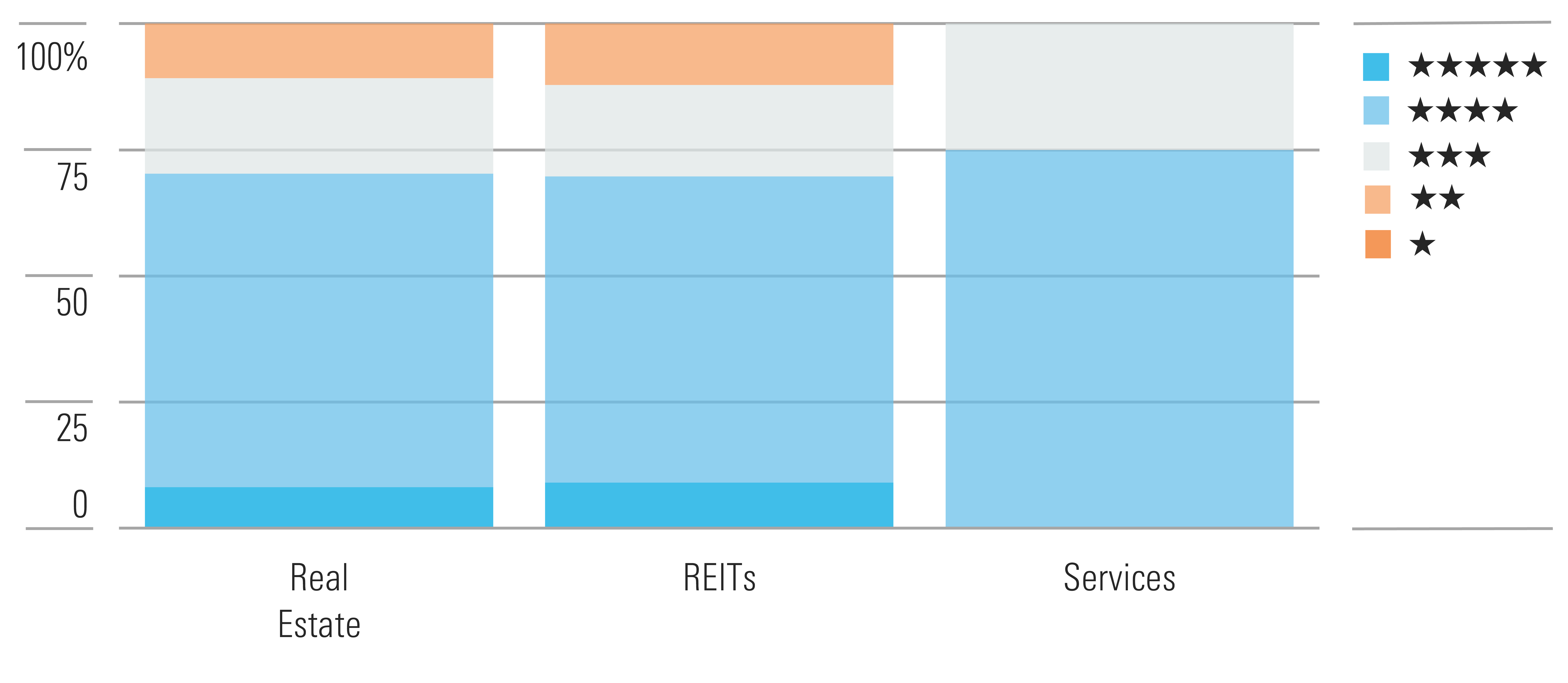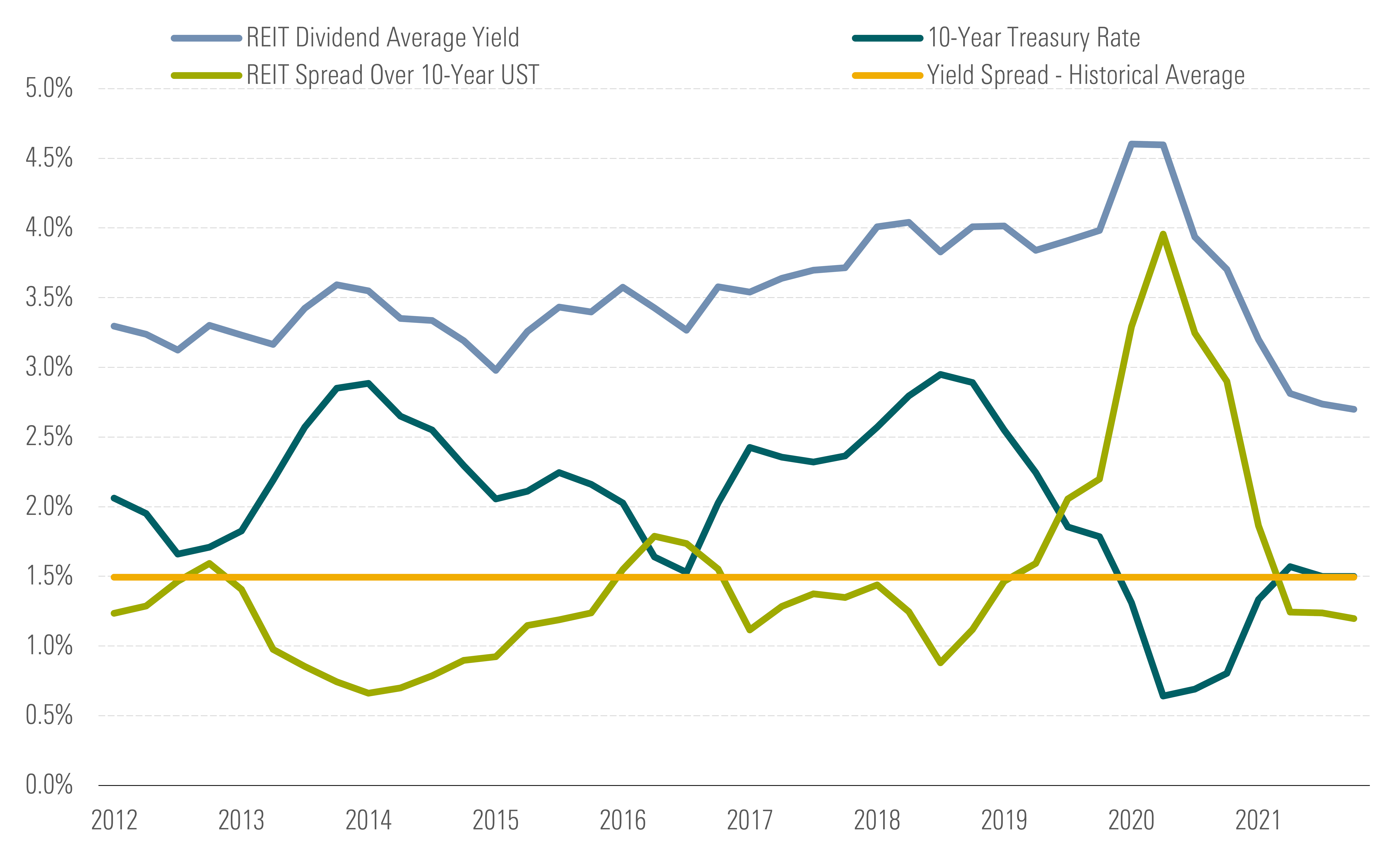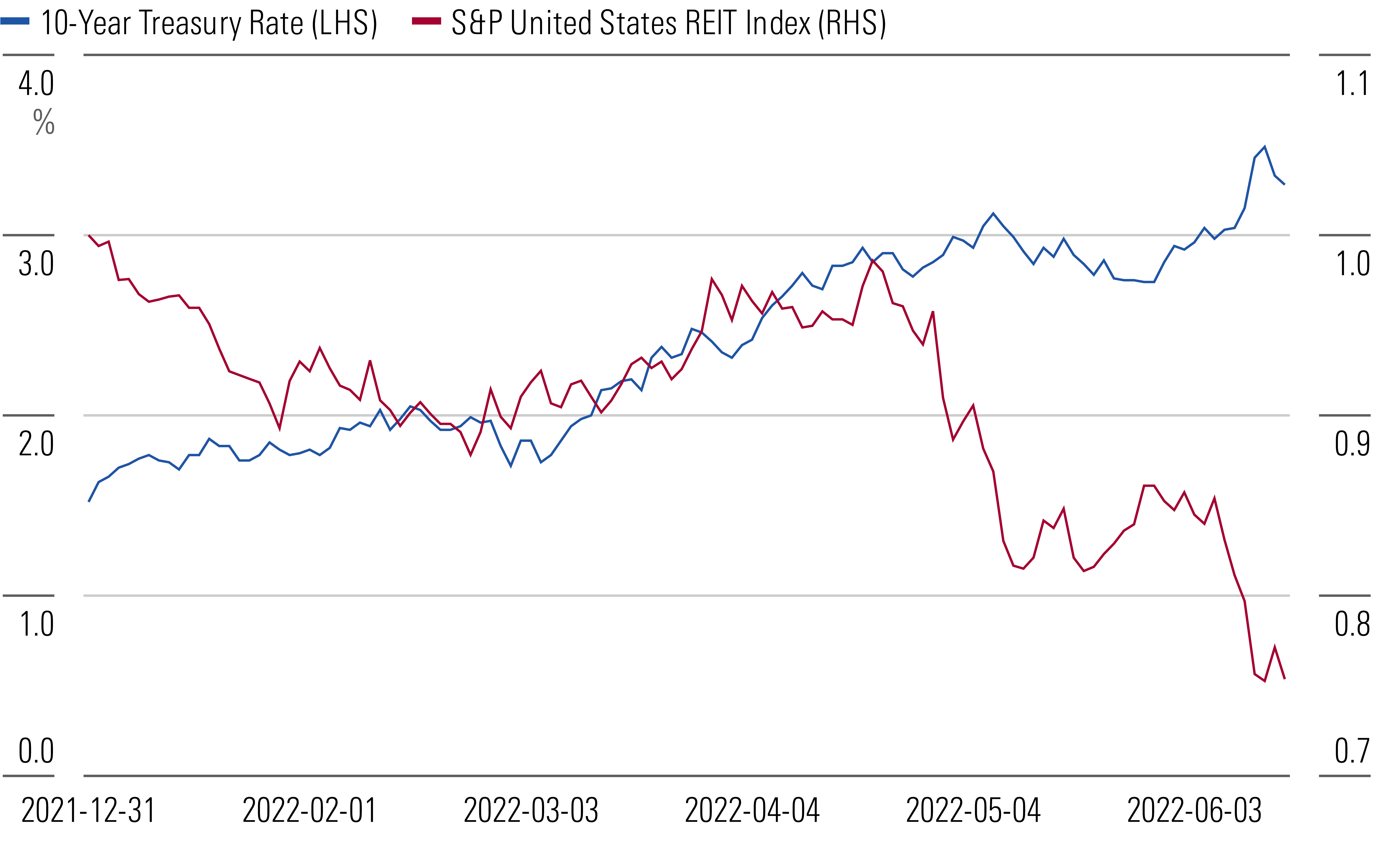Interest Rates Will Continue to Pressure Real Estate Stocks
Despite recent challenges, fundamentals still look strong and 70% of the sector is undervalued.
The Morningstar US Real Estate Index is down 6.7% over the trailing 12 months, which is slower than the 11% decline of the broader U.S. equity market over the same period. The real estate sector saw a 13.2% decline in the second quarter of 2022, which is in line with the 14.2% decline of U.S. equities.
However, recent negative performance does not reflect the state of real estate fundamentals, which continues to accelerate as the industry recovers from the pandemic and high inflation allows many to push along high rental increases.
Real Estate Performance Roughly In Line With Broader Market

- Source: FRED, S&P Global, Morningstar. Data as of June 16, 2022.
Our real estate coverage is trading at a 27% discount to our estimate of fair value, which is in line with or better than many other North American sectors. Currently, 70% of the sector is trading in either 4- or 5-star range, 19% is trading in 3-star range, and 11% is trading in 2-star range, while no company is currently trading at 1 star.
Many Real Estate Companies Trading at a Discount to Fair Value Estimate

- Source: FRED, S&P Global, Morningstar. Data as of June 16, 2022.
Over the past decade, REITs have provided a dividend yield that is approximately 1.5% higher than the available rate on the U.S. 10-year Treasury. While the spread jumped during the first year of the pandemic as the Federal Reserve lowered interest rates to stimulate the economy while the drop in share prices increased REIT dividend yields, the sector returned to the historical average spread in the second half of 2021. While there might be short-term disruption to this relationship from time to time, we anticipate that the REIT sector will be significantly affected by interest-rate movements as income-oriented investors shift money into and out of the sector based on government rates.
REIT Dividends Have Historically Been 1.5% Above the 10-Year Treasury Rate

- Source: FRED, S&P Global, Morningstar. Data as of June 16, 2022.
Rates on the 10-year U.S. Treasury have more than doubled since the start of the year, as the Federal Reserve attempts to combat the highest level of inflation in many decades. While the REITs index rose in March and April and companies reported strong cash flow growth with high inflation driving rental revenue higher, the real estate index has otherwise fallen as interest rates have risen. With further interest-rate increases expected through the year, we anticipate that share prices may see further downward pressure as income-oriented investors rotate out of the sector. However, we believe cash flows should continue to benefit from high inflation through the back half of the year as many companies still anticipate record levels of growth in their 2022 outlooks.
Rising Interest Rates Have Contributed to the Decline in the Real Estate Index

- Source: FRED, S&P Global, Morningstar. Data as of June 16, 2022.
Top Picks
Simon Property Group SPG Star Rating: ★★★★★ Economic Moat Rating: None Fair Value Estimate: $160 Fair Value Uncertainty: Medium
Class A malls continue to outperform other forms of brick-and-mortar retail. While the stock sold off significantly during the height of the pandemic, it recovered to prepandemic levels by the end of 2021 as brick-and-mortar sales rebounded. Tenants are now much healthier, with occupancy costs at the lowest levels in over six years, which should allow Simon to see further occupancy and rent increases. Additionally, Simon recently acquired Class A mall competitor Taubman Centers, which should increase cash flows and provide more leverage when negotiating with tenants.
Park Hotels & Resorts PK Star Rating: ★★★★ Economic Moat Rating: None Fair Value Estimate: $25.50 Fair Value Uncertainty: Very High
While the coronavirus significantly damaged Park's operating results, with high-double-digit declines in revenue per available room and negative hotel EBITDA in 2020, the company's portfolio started to recover in 2021 and into 2022. Leisure travel has rebounded to near prepandemic levels, leading to a return of positive hotel EBITDA. However, business and group travel have been slower as workers have yet to fully return to the office. Still, we think business and group demand will eventually return close to prepandemic levels by the end of 2024, leading to years of strong growth for Park.
Ventas VTR Star Rating: ★★★★ Economic Moat Rating: None Fair Value Estimate: $69 Fair Value Uncertainty: Medium
Ventas owns high-quality assets in the senior housing, medical office, and life science fields. While the company's medical office and life science portfolios should be relatively unaffected by either the pandemic or a potential recession, the senior housing portfolio saw a large drop in occupancy in the first year of the pandemic as the coronavirus has the highest lethality rate among senior citizens. However, occupancies began to recover in 2021 as the vaccine became available, and the industry should see strong long-term growth from the coming demographic wave of baby boomers aging into senior housing facilities.

/s3.amazonaws.com/arc-authors/morningstar/b9459b20-3908-4448-a36c-b728946ddbe5.jpg)
/cloudfront-us-east-1.images.arcpublishing.com/morningstar/V33GR4AWKNF5XACS3HZ356QWCM.jpg)
/cloudfront-us-east-1.images.arcpublishing.com/morningstar/D653LVS4SJBYREMM6W6TGIX2DQ.jpg)
/cloudfront-us-east-1.images.arcpublishing.com/morningstar/4JOND5R2SBFPZE63XWPYQDG56A.png)
:quality(80)/s3.amazonaws.com/arc-authors/morningstar/b9459b20-3908-4448-a36c-b728946ddbe5.jpg)